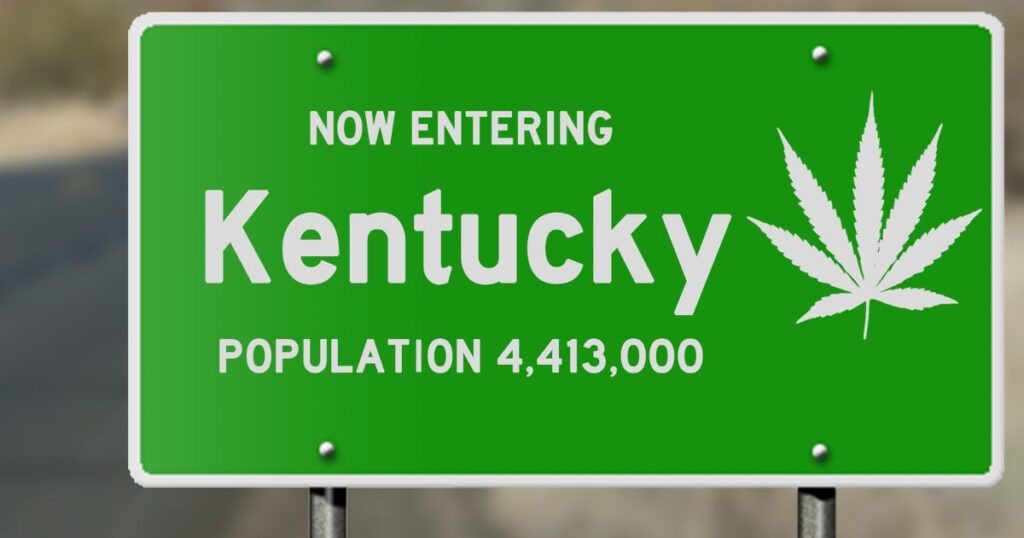Kentucky’s medical marijuana industry is a beacon of opportunity for entrepreneurs – an emerging market poised to catapult the state as another player in the nation’s cannabis renaissance. With the passage of Senate Bill 47 in 2023, Kentucky signaled a shift towards a more inclusive and diversified agricultural landscape, but the road to regulatory clarity is winding, presenting a unique set of uncertainties for those ready to enter Kentucky’s new medical marijuana market.
Kentucky, traditionally renowned for its tobacco industry, is charting new territory with the legalization of medical marijuana. The potential for economic benefits has already drawn the attention of established players in the Kentucky hemp industry, who now stand at the threshold of an emerging market that could breathe new life into Kentucky’s economy. However, some entrepreneurs find themselves in a challenging state of anticipation without the vital framework of business licensing regulations.

Despite the palpable anticipation leading up to the medical marijuana program’s launch on January 1, 2025, critical regulations remain unformulated. This absence of operational guidelines is more than a mere paperwork delay; it is a fundamental obstacle affecting the very core of business planning and development. From licensing criteria to fee structures, the regulatory vacuum has left a void in essential business strategy for those eager to transition or innovate within the cannabis sector.
As Kentucky kicked off the new year in 2024, the Kentucky Cabinet for Health and Family Services (CHFS) took a big step by releasing draft regulations, showing progress towards launching the state’s medical cannabis program. While these regulations covered various operational aspects of cannabis businesses in detail, such as cultivation methods and advertising guidelines, They missed out on specifying the number of licenses to be given, how businesses in different sectors can apply, or the requirements to qualify for a license.
This gap has left entrepreneurs and businesses aiming to join the green rush feeling uncertain. Without specific licensing guidelines, potential market players are navigating blindly, unsure how to align their business plans with future regulations. The vague testing standards also raise concerns about product safety and compliance, which are crucial for building customer trust and maintaining product quality.
The CHFS mentioned that more draft regulations are on the way, offering hope for clarification in these key areas.
CHFS spokesperson Brice Mitchell told The Courier Journal “in the coming weeks and months” the cabinet would provide additional regulations on how “businesses can apply for a medical cannabis business license.”
For entrepreneurs like Jim Higdon, co-founder of Cornbread Hemp, the pause is more than procedural; it is a pragmatic puzzle. The inability to plan for essential elements – such as tax implications, operational logistics, and essential business provisions – forces a premature pause in growth and strategy for many entrepreneurs.
“Before Cornbread Hemp can answer yes or no, there’s a lot of questions that we need answered first,” said Jim Higdon, co-founder of Cornbread Hemp via The Courier Journal. “We’re working very diligently to figure out what’s possible and not possible here … we want to grow our business naturally according to the law.”
Beyond the Start Date
The significance of medical cannabis legalization in Kentucky extends beyond industry stakeholders; it heralds a period of transformation and potential for a state with a rich agricultural heritage. Deploying regulations in a responsible and timely manner won’t just meet entrepreneurs’ immediate needs; it’ll also lay the groundwork for a strong and lasting cannabis economy.
The evolution of Kentucky’s hemp industry is a prelude to the dynamic changes that await within the medical marijuana realm. Entrepreneurs and businesses that have flourished within the context of existing legislation now stand at the precipice of a new era, one that demands a growth mindset, proactive engagement, and – most critically – a partnership with the state to facilitate a smooth transition and successful integration into the medical cannabis landscape.

Overall, Kentucky’s initiative to join the ranks of states with legal medical marijuana programs represents a significant milestone in the broader narrative of cannabis normalization across the nation. This move underscores a gradual but undeniable shift in how society perceives and utilizes cannabis, transitioning from a stigmatized substance to a recognized medicinal aid. Despite this progressive stride, the state’s regulatory bodies have yet to unveil critical details concerning the licensure process for aspiring cannabis businesses.
With less than a year until the program’s anticipated launch, the absence of information on the application process and the number of licenses to be issued leaves potential entrants in limbo. Such uncertainty hampers entrepreneurs’ and investors’ ability to lay the groundwork for their ventures, hindering strategic planning and operational readiness. This gap in regulatory clarity not only stifles immediate business opportunities but also poses a challenge to the smooth establishment and growth of Kentucky’s medical marijuana sector.
Therefore, while Kentucky’s forward movement heralds a significant leap towards the normalization and acceptance of cannabis, the path to actualizing this vision is riddled with ambiguity, urging an urgent need for comprehensive regulatory frameworks to support the state’s entrepreneurs and the budding industry at large.

















